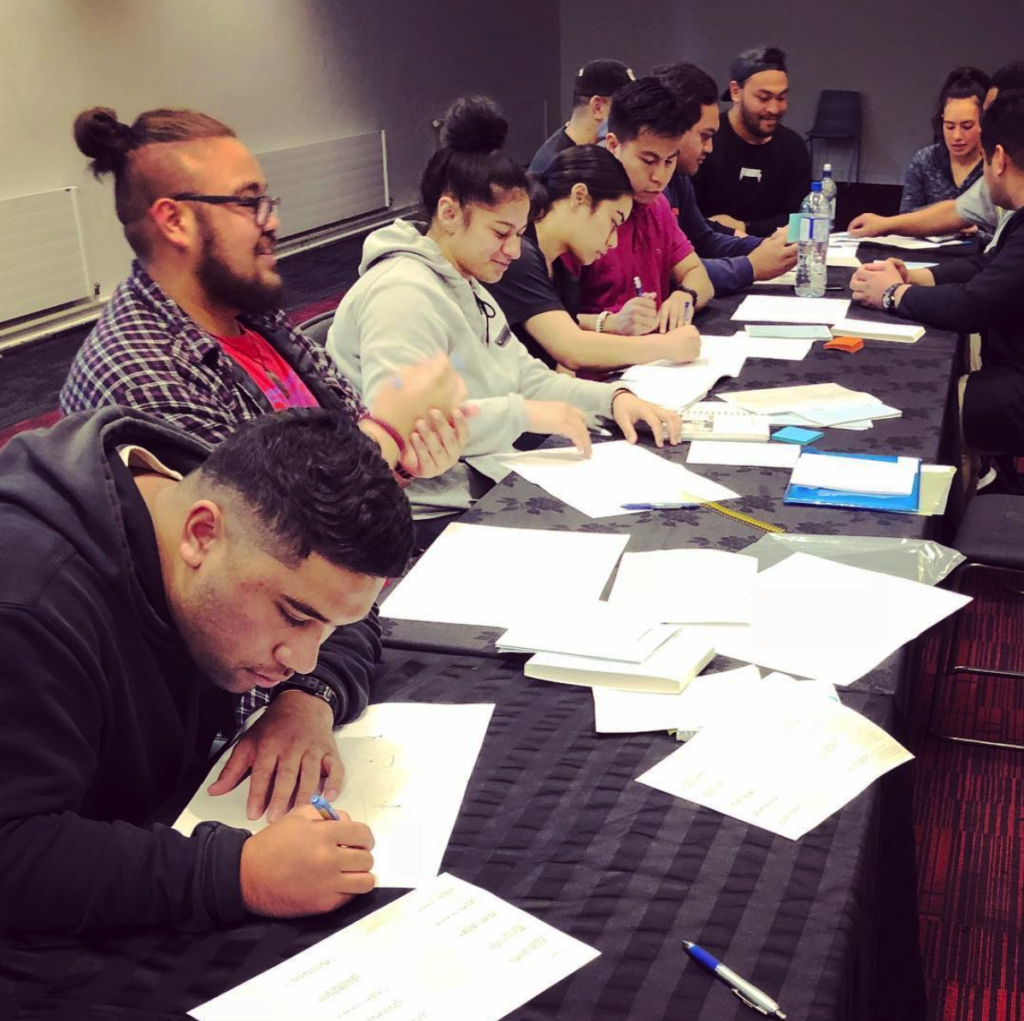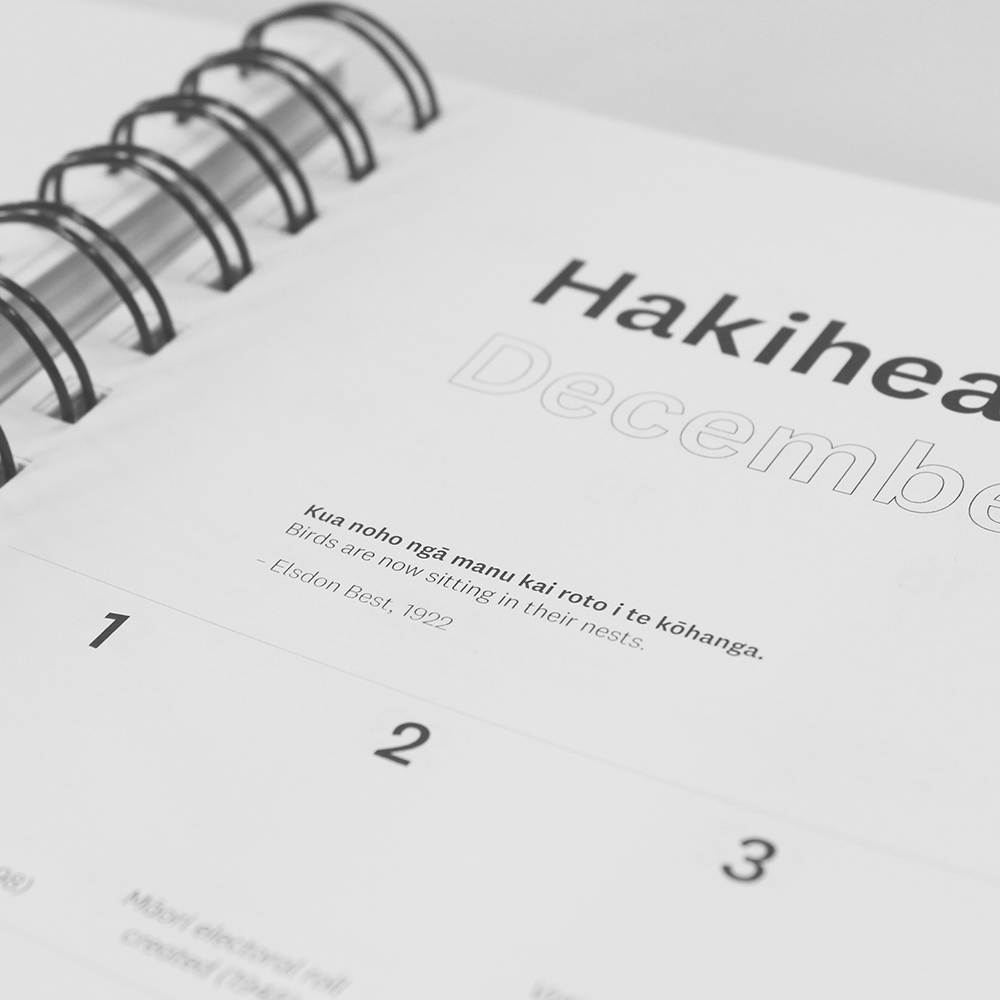To welcome in the New Year, the McGuinness Institute is pleased to announce the publication of Āpōpō Journal: Navigating the future with foresight (Mā te matapae te wāheke e whakatere). Completed at the end of 2018, we combined forces with the creative talent of 18–25 year olds to produce a fresh and unique journal. Āpōpō Journal is designed to help young people think and plan for the long-term future.
Complimentary copies of Āpōpō Journal have been offered to decile one secondary schools across the country, and the journal is available for purchase from the Institute’s online store. For further purchase information see the journal’s website, www.apoponz.org.

Focus groups gave feedback on Āpōpō Journal during the development process.
Āpōpō Journal commemorates ten years of our flagship Project 2058, focused on Aotearoa’s long-term future. Āpōpō is te reo Māori for tomorrow. This was chosen as the title to illustrate the idea of looking to the future (foresight) while remaining in the present (insight) and reflecting on the past (hindsight), which is key to the journal.
Institute chief executive Wendy McGuinness says Āpōpō Journal ‘will provide space and inspiration for young people to chronicle and explore the next 40 years!’ Featuring a special pātaka maumahara (evolving time capsule), historical New Zealand dates, practical advice and the latest foresight tools, Āpōpō Journal is designed to encourage New Zealanders to explore life’s challenges and opportunities through a new lens.

Users can reflect on the past using Āpōpō Journal‘s calendar, complete with historical events from New Zealand’s past.
The initial spark for creating the journal came from past Institute workshops involving young voices from around Aotearoa. These workshops provide an opportunity for 18–25 year olds to come together and apply hindsight, insight and foresight to work on significant future issues affecting our nation’s future.
WakaNZ participant and contributing poet Anna-Marei Kurei describes her most valuable workshop experiences as:
learning about myself, my skills and capabilities. I just feel like there’s a power in knowing yourself, your weaknesses and strengths, and working with both to navigate space and achieve goals.
Bringing together a diverse range of opinions, as happens at workshops, was key to the journal’s development. We worked with young photographers, writers, researchers, designers and focus group participants to create an inclusive journal that helps users to identify what it means to be a New Zealander.
Fellow contributing poet and WakaNZ participant Shaquille Shortland observed that:
a journal like this is definitely something that is needed in our generation; an era in which the Internet is king and Google gives us the answer instantly. Yes it’s knowledge, but understanding is only built along the journey taken to attain the knowledge.
